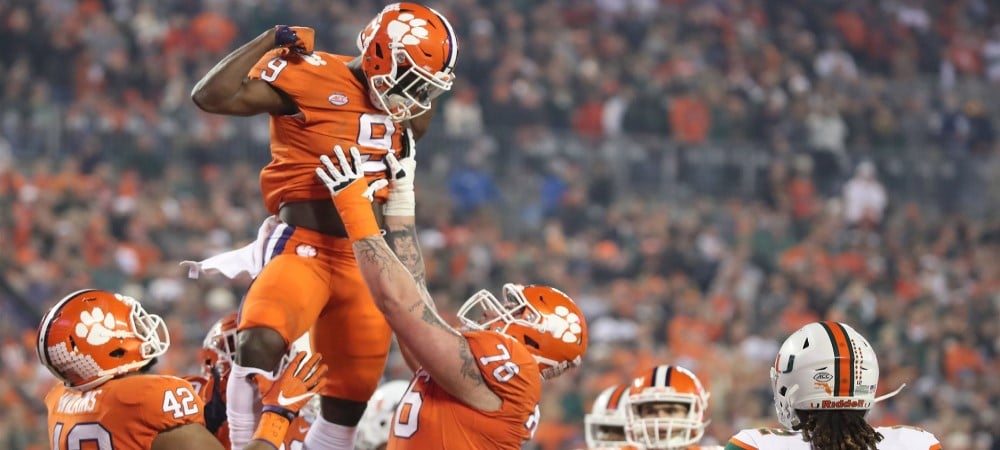- Villanova University was the first university to ban students, staff, and faculty members from betting on the school’s athletic programs.
- Purdue became the first public university to instill the same prohibitions as Villanova and SJU.
- In Pennsylvania and in Indiana, sports betting laws allow anyone above the age of 21 to bet on any collegiate team or athlete of their choosing.
PHILADELPHIA – University executives have recently taken the matter of sports betting guidelines into their own hands.
Villanova University, St. Josephs University, and most recently Purdue University, have all banned their own students, staff, and faculty members from betting on their school’s athletic programs, leaving many to wonder if their school might be next.
Villanova, which is a private university located in Philadelphia, was the first to enact these policies when their sports betting prohibitions went into effect on November 12, 2018. This was only four days before the first sportsbook in Pennsylvania opened.
Last week, St. Joseph’s joined Villanova in becoming the second private collegiate institution to restrict its current members from betting on the school’s home teams or athletes.
“Saint Joseph’s University is an institution built on community, in which we encourage all members to support one another in achieving personal, academic and spiritual growth,” the policy states.
“Allowing Saint Joseph’s University students, faculty, staff, contractors, and members of the Board of Trustees to gamble on the performance of University student-athletes or staff members runs contrary to the sense of community that is so critical to the University.”
The fact that both institutions are private helps them have the ability to authorize policies that are contradictory to the current state laws. However, Purdue University made headlines last week by becoming the first public university to pass a similar code on to its current students and staff.
“The policy was developed at the urging of some faculty members, as well as the Department of Intercollegiate Athletics, after sports betting became legal in Indiana earlier this year,” the university wrote in a press release. “The policy applies to wagers placed worldwide and online.”
The new guidelines came with a bit of controversy and have made many question whether these institutions have the legal right to enlist such measures.
Indiana sports betting laws and Pennsylvania sports betting laws both allow anyone above the age of 21 to bet on any collegiate team of their choosing.
If these universities are free to bypass state laws surrounding legal sports betting, can the same be done in other states?
Future of Sports Betting Policies In The U.S.
Since the repeal of PASPA in May of 2018, 17 states have legalized sports betting in some form and each have come up with their own specific laws surrounding the activity.
Certain states have prohibitions regarding certain types of collegiate bets written directly in their state law books.
For example, New Jersey doesn’t allow anyone in the state to bet on collegiate sports programs that are housed in NJ or any collegiate event that takes place within NJ borders.
Iowa, on the other hand, allows anyone to bet on the state’s home teams. But, they are barred from placing any live bets on specific student-athletes no matter where they are competing.
Other states are similar to Indiana and Pennsylvania in that they allow betting on NCAA home teams and only have an age restriction to possibly stop students from betting.
Many other states are expected to legalize sports betting in the future, including Michigan and Ohio possibly later this year.
Those states may look to these colleges as a sign that there should be collegiate betting bans mandated by state laws. They could also go the opposite route and stop institutions from being able to add their own rules for their students in public universities.
How Does The NCAA Feel About Collegiate Sports Betting?
The NCAA has long opposed any form of legal and illegal sports betting. The Association has its own policies that disallow its athletes, coaches, or any involved members from betting on any NCAA events.
The NCAA has even tried to stop sports wagering from spreading the U.S. entirely.
It was the state of New Jersey that took the NCAA all the way to the U.S. Supreme Court after former NJ Governor Chris Christie signed sports betting into law in the state. It was in this court ruling that SCOTUS ruled the Professional and Amateur Sports Protection Act unconstitutional.
Because of the decision made by the Supreme Court, every state in the country can now shape their own sports betting legislation to their individual needs and liking.
Last month, the NCAA put their focus back on the federal government in trying to shape a uniform sports betting guideline for every state to follow.
The NCAA is expected to hold its stance against any forms of sports wagering in the country. Their influence on public universities may invoke university officials to enact their own anti-sports gambling policies. That, in turn, could influence state lawmakers all around the country when deciding how to handle collegiate sports betting on their home schools.
Advertising Disclosure
In order to provide you with the best independent sports betting news and content LegalSportsBetting.com may receive a commission from partners when you make a purchase through a link on our site.
News tags: Chris Christie | Indiana | Iowa | NCAA | New Jersey | Pennsylvania | Purdue University | St. Josephs University | Villanova University

– In his career, Hasan has worked both local and state government positions—including the Attorney General’s Office in Florida. On top of being familiar with the legislative process, he has also been researching and writing on the legality of sports betting across the US. Outside of work you’ll most likely find him producing or playing music, playing sports, or working on creative writing projects. You’ll also catch him at Doak Campbell Stadium cheering on the Noles.


 Bitcoin Sports Betting Sites
Bitcoin Sports Betting Sites Best Online Sports Betting
Best Online Sports Betting Famous Sports Bettors
Famous Sports Bettors States With Legal Sports Betting
States With Legal Sports Betting Sports Betting Events
Sports Betting Events




